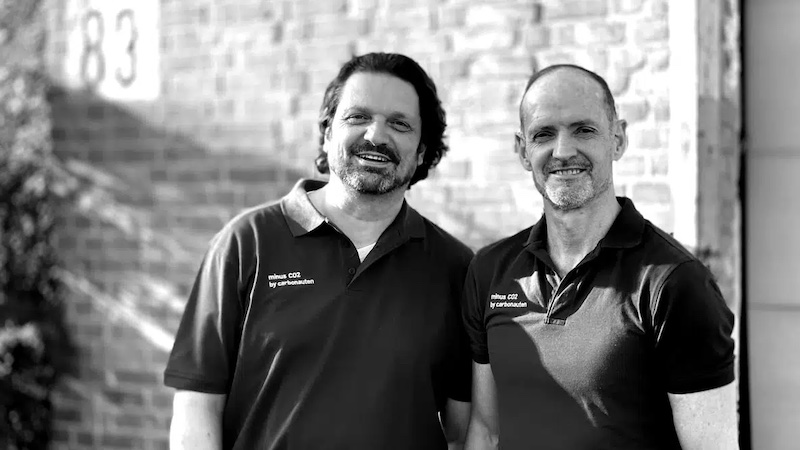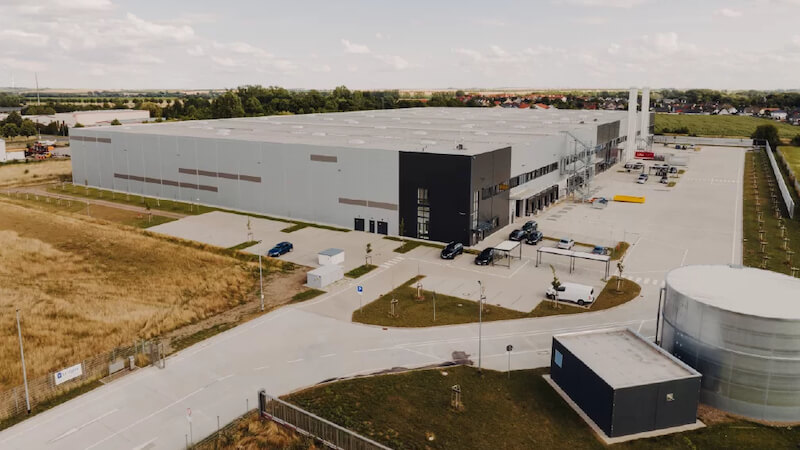Checking out the climate protection start-up Carbonauten
In the “Start-up-Check!” series, we regularly examine the business models of start-ups. Who is behind the company? What makes the start-up so special and what is there to criticize? Today: the carbonauts.
Start-ups: That sounds like inventiveness, future technologies, new markets. In reality, however, many of the start-ups unfortunately often turn out to be a mixture of an e-commerce idea, haphazard founders and shaky future prospects.
But they do exist: the pioneers who work on the big problems and revolutionize business models. Finding and presenting these is the task of the Start-up-Check format. Today: Carbonauts from Giengen.
Contents
Carbonauts: super material with superhero powers
The message is crystal clear. As clear as fresh mountain spring water: “fk CO2”, is written in large letters on the Carbonauten website – without an asterisk, i.e. with “u” and “c” between the “f” and the “k”. “No Bulls from heret more”:
I can well imagine how the co-founders Torsten Becker and Christoph Hiemer of the greentech startup founded in 2017 would pronounce this sentence. Because they are men of action, modern superheroes, so to speak, with a lot of know-how in their luggage.
What are the carbonauts doing?
And with your project, you are taking the reins of environmentally conscious trade into your own hands, so to speak. Her recipe: bio-carbon. Carbonaut CTO Christoph Hiemer brought the idea to the company. From this, the Carbonauts developed a super material that has real superhero powers.
And of course it has what it takes to finally end the seemingly eternal climate disaster. Because: Biocarbon not only stores and binds tons of CO2, but also convinces with numerous material properties that are particularly relevant for industrial use. More on that in a moment.
A real miracle of flexibility To produce biocarbon, the carbonauts use a special carbonization process. To do this, Becker and Hiemer use a technology they developed themselves. From organic residues such as wood chips, sawdust residues, nut shells or waste wood, it gains industrially usable raw materials and recyclable materials, which – logically – are based on biocarbons instead of fossil carbons.
Minus CO2 factories
The carbonauts in turn use this technology in so-called “minus CO2 factories”. They are characterized by a high level of process control, maximum energy efficiency and robustness.
These are crucial prerequisites for realizing low production costs, specific product properties, high quality and large output quantities. Another plus:
Production can be adapted to a wide variety of material flows, special product requirements or changing market needs within a few hours. This transforms a “minus CO2 factory” into a real miracle of flexibility. This is what is known as the batch retort process.
Advantage: The carbonization carried out by slow pyrolysis does not have moving parts and is therefore not only designed for organic residues, but also for problematic substances. In this way, even materials that contain impurities such as nails, stones or synthetic fibers can be carbonized in an environmentally friendly way.
The Carbonauts want to produce 7,500 tons of bio-carbon per year
With this process, the carbonauts started the production of bio-carbon in the summer of 2022 in the “minus CO2 factory 1” at the Eberswalde site near Berlin. The plan is to produce around 7,500 tons of the valuable raw material annually, which actually stores more than three times as much CO2 per ton, i.e. de facto does not emit it.
This makes biocarbon not only climate neutral, but also CO2 negative. The products made from this by the Carbonauts – the so-called NET Materials® – are also particularly easy to recycle and can even be composted into valuable black earth (“Terra Preta”).
In addition, the carbonauts in Eberswalde aim to produce up to 4,000 tons of technical bio-carbon, to which up to 70 percent bio-carbon is added. This variant is particularly suitable as a low-emission raw material for industry.
The Carbonauts understand technical bio-plastic to mean highly stable, torsion-resistant, heat-resistant, ultra-light and anti-static composite materials – material properties that are in no way inferior to conventional composite materials produced on a fossil basis.
Why not rely on technical bio-carbon?
This makes this type of NET Material® very attractive, especially for applications in industry and plastics production. There one is dependent on carbon-based products or semi-finished products. So why not rely on technical bio-carbon, which has the best material properties and also improves the CO2 balance. Who doesn’t want that?
Other use cases in agriculture, the construction industry or the energy sector document how advanced the carbonaut concept is. The NET Materials® range from bio stimulant®, a fertilizer that is based on biocarbon and accelerates plant growth, to various regenerative biocomposites.
This includes composites with up to 50 percent biocarbon content – up to NET Materials® for the construction industry – for example plaster, concrete or insulating materials – as well as the energy sector, which benefits from the up to 24 gigawatts of waste heat generated when operating a minus CO2 factory develop.
Biocarbon: There is an enormous need
In view of the climate goals, the global demand for biocarbons is enormous. And the Carbonauts are ready to meet the demand – with a tightly knit, global network of minus CO2 factories that carbonize biomass residues exactly where they are produced.
This not only protects regional resources, but is also of great advantage for the local energy supply of companies, cities and municipalities. This is made possible, as I already indicated above, through standardized production modules.
They allow the quick realization of minus CO2 factories in different sizes and include later adjustments and extensions. The aim is to reduce the emission of climate-damaging gases in the gigatonne range by 2030 via the minus CO2 factories.
Carbonauts: The impact of the industry could be bigger
The impact would be even greater if the key industries would also integrate this technology in their production processes. Although they are interested, there can be no question of a reception. Technical biocarbons currently do not play a major role either in the automotive industry or in the conventional chemical industry.
In other words: The industrial multinationals are still too comfortable in their bubble. In the future, this is exactly where the systematic conversion to consistently climate-friendly production must start. Namely via technology transfer, which integrates the minus CO2 factories into the processes of the industry.
The technology itself is ready for this. To date, however, active involvement has been limited to medium-sized companies. And yet this shows that NET Materials® are indispensable raw materials for industry.
Also interesting:



